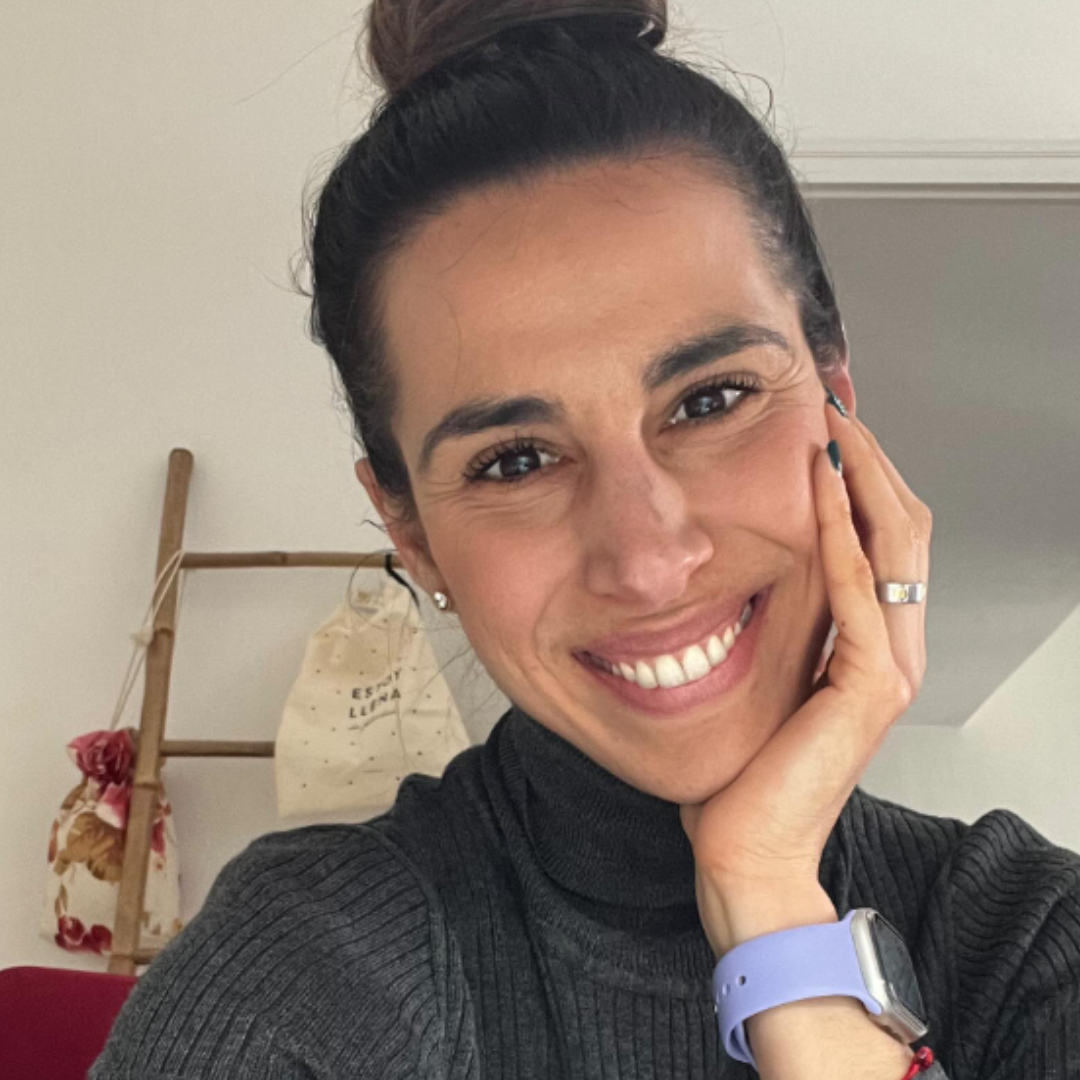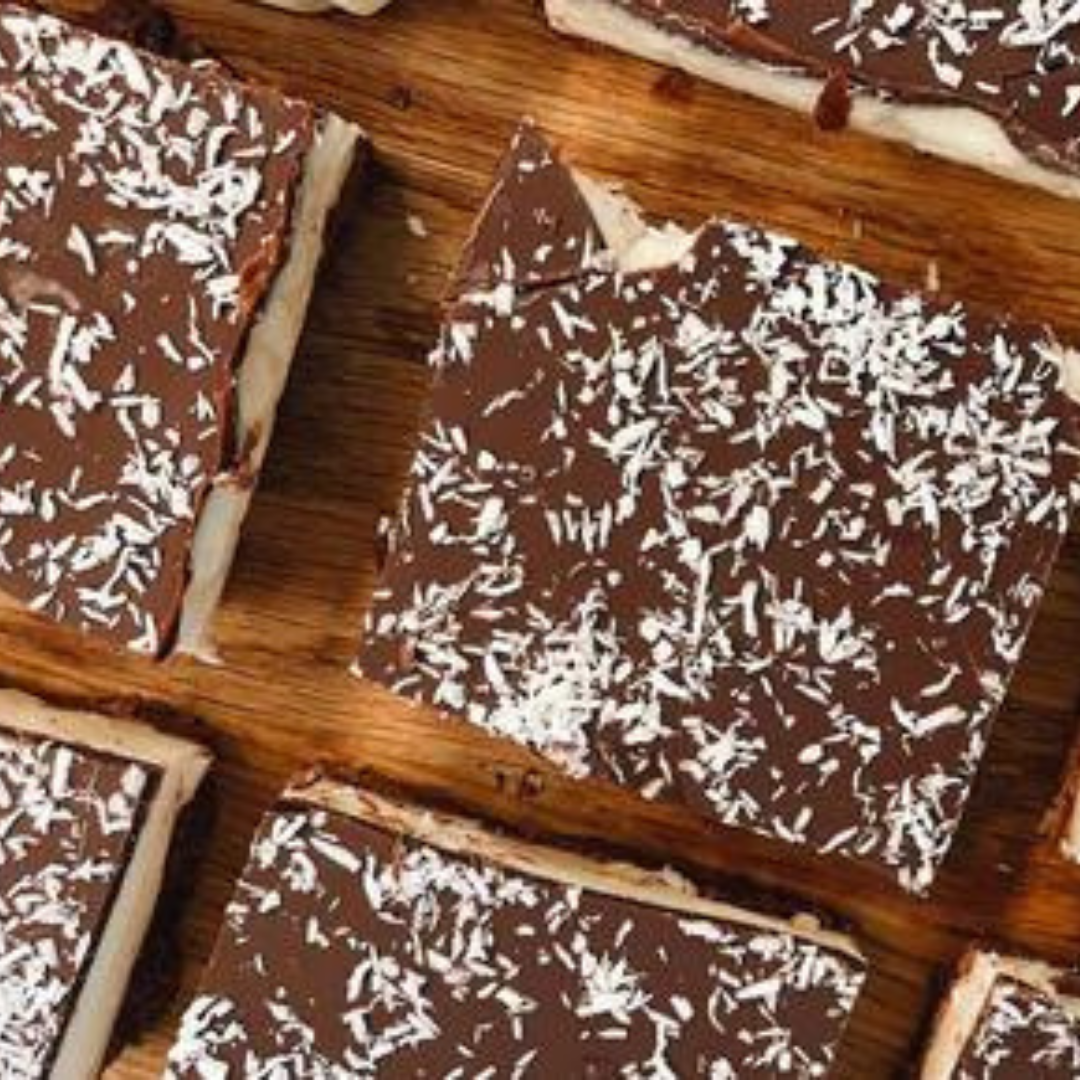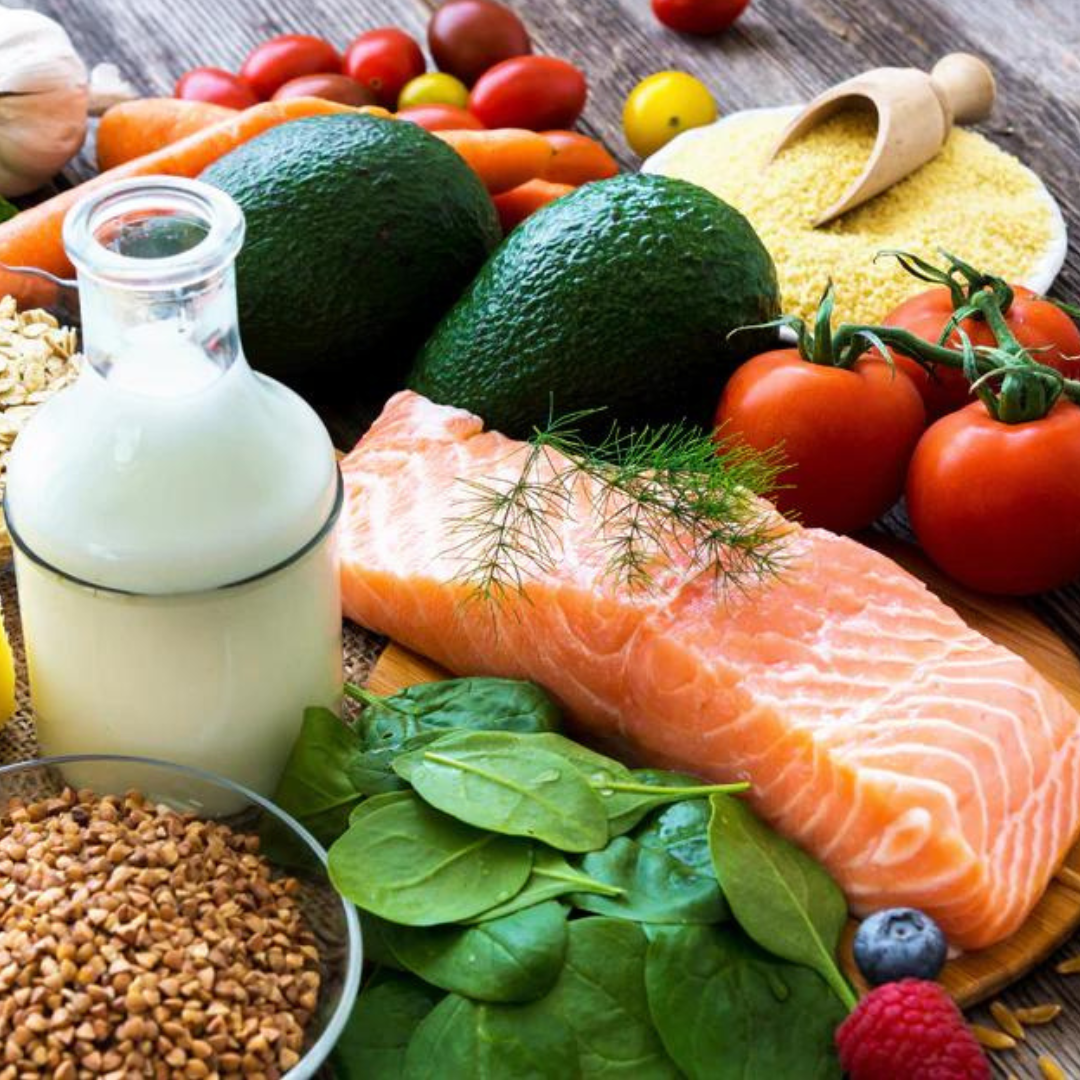
How it all started
She used to be overweight when she was a little girl. When she was young she was always on a diet. Even though she was living a healthy lifestyle, ate really healthy, and worked out a lot, the results were not what she expected.
Later, she moved to Barcelona were she joined a gym and took classes with a personal trainer and was also offered a session with a nutritionist. That's when everything changed and when she started to discover the training and nutrition world. That’s when her relationship with food started, she realised that although she was on a diet, she could eat rice, bread, and even chocolate and still get the health results she was working for. Her body started to change and along with that, her mental health and energy improved.
Discovering the world of fitness and nutrition was the push she needed to start studying what she really loved: nutrition. She got a degree in sports nutrition, although that degree did not allow her to become a professional. She liked it, and so she researched different ways of how she could combine both her job with her studying.
As a result of the pandemic and lockdown, she started thinking more about nutrition and decided to leave the marketing job at the agency to get her nutrition diploma, which was what she was passionate about. She wanted to help people to avoid making the same mistakes she had made when she was younger while showing them how to eat healthily.
There is a lot of misinformation on social media about food, the world of diets, etc. And, as a matter of fact, it happened to you as well. What do you think about this misinformation?
The main problem with nutrition comes from a set of ingrained myths produced by a lack of information and a lack of professionalism in the sector.
In the past, when you wanted to lose weight, you went to the doctor and they gave you a closed diet, without personalisation. They would tell you things without any guidelines, maybe they would take out the carbohydrates but in reality, what you really needed was to understand what works for you. What Maria says is that there was only one way to diet, and the foods were predetermined most of the time.
To diet does not necessarily mean to stop eating certain foods, Maria has clients that eat chocolate and it blows their minds because they say that they would never have thought that they could eat a piece of chocolate while dieting. If the ingredients are of good quality, of course they can eat them, but always in moderation. A lot of people have not been educated to think about what kinds of ingredients are good and bad for the body.
People have learned that if you do it the old fashion way it works. Luckily, thanks to social media, which is also a double-edged sword, you learn about a lot more things and you go beyond the simple concept of diet, you see different points of view and you also learn.
Maria makes a lot of emphasis on saying that everyone is their own self, everyone has their own metabolism system, their own lifestyle. You can't generalise a diet.
What do you mean by “having a relationship with food”?
We are what we eat. Taking care of food has changed her life. She started in the world of dieting because of an appearance issue, she didn't like the way she looked and wanted to change it. But when she reached the weight she wanted, she realised it came short of what a healthy lifestyle should look like. She started to take care of her diet and she saw that it gave her many more benefits than just losing weight. She noticed the improvement in her mental health, she performed better, she was more connected with herself and even had more energy.
The relationship with food is all that involves food on a nutritional aspect, and on a mental one. It involves understanding that it's good to live a healthy lifestyle 90% of the time and also be able to have that 10% of flexibility.
What is the process of learning to eat like?
Maria teaches you to eat everything. She doesn't like to give people a closed menu because everyone is different. Teaching how to eat means telling her clients the options they have, and providing them with different foods so that the person can pick. If, for example, they go out to eat or if that day they don't have the food they were going to make in the fridge, Maria provides them with a lot of alternatives that also fit in the diet plan.
There are some things that are essential when following on a diet. For example, prioritising local vegetables and fruit as well as wholegrain carbohydrates, and sources of healthy fats olive oil, avocados, etc.). Even if someone cannot follow a precise dietary pattern because they cannot go to a nutritionist, just by changing small things, they will see big changes.
Eating badly can be related to eating too little or eating unhealthy ingredients. What ingredients would you tell people to stop eating?
There are a lot of things that people do wrong unconsciously. For example, eating less is not the same as eating better. If you come from a week of excessive eating and you think that the solution is to restrict what you eat then you are wrong. Maria says that we tend to beat ourselves up too much on the subject of compensating for food and it doesn't have to be like that. We have to learn to eat everything, we don't need to go hungry, ever.
Maria's recommendations are:
- Learn to eat without restrictions or prohibitions.
- If you have any doubts, put yourself in the hands of a professional who inspires confidence in you and who will adapt to your goals, needs, and taste palette.
- Enjoy the diet plan and eat what you like and what you feel like eating. You will feel strong and nourished.
Not all of us have time to cook for ourselves every day. What would you say to those people who associate healthy eating with long hours of cooking?
Maria is a very practical person. She has also been in that situation, now she works from home but, when she worked in the agency, she used to get home very late, but what helped her not to fail when it came to healthy eating, was organisation.
It all starts with the shopping we do in the supermarket. If you are organized and know all the ingredients you need in order to follow your diet, then it’s easy. Nowadays there are a lot of healthy ready meals that make it a lot more accessible and easy to stay in track with the diet plan you are following.
Tips:
- Make a healthy purchase and buy food that you know will bring you closer to your goal. Do not buy frozen pizzas, noodles, etc.
- Get organised. Batch cooking is gaining more exposure and is very helpful. It allows you to organise yourself and know what you are going to eat throughout the week.
- If you are lazy, make easy recipes that don't take up too much of your time.
Intermittent fasting has many benefits but it is not for everyone, have you tried it and do you recommend it?
Intermittent fasting is another alternative that can be very good depending on the type of patient. This, like everything else, has to be individualised. There are different types of fasting, for example, 10 hours, 12 hours, 14 hours, and even 24 hours. She suggests it has to be supervised by a professional.
Obviously, it can work very well for people who have a lifestyle that allows them to fast. When Maria was little she used to wake up and not be hungry for a few hours, but her parents made her eat, she would have milk with cocoa, a muffin or cereal, that breakfast nutritionally speaking was worse than not eating breakfast at all!
Intermittent fasting, has many benefits, including mental clarity and having more energy. However, if your goal is to lose weight, and when you break the fast you eat much more than you should, the calorie level increases and losing weight is going to be very complicated for you.
Women are affected differently than men. Whether women are in the luteal phase (the period of time between ovulation and menstruation) or in full menstruation, each phase is different and fasting is sometimes not recommended. If you are breastfeeding, for example, it is not recommended either and could be dangerous.
Is it advisable to count calories in order not to put on weight?
In order to have a calorie deficit, we have to know what we are consuming. You also have to know how to count calories. Maria gets a lot of messages from young girls about calories, how to count them, how many you have to consume, etc. She tells them that it is best to have a talk with their parents and speak about how they want to go to a nutritionist and get professional help. Because these behaviours can end badly and have to be stopped ahead of time. Giving them the security of having a nutritionist to guide them is important, they will learn how to eat and consequently, learn how to have a good relationship with food.
Where can we find Maria de Lluc:
Other blogs you might enjoy:




Leave a comment
All comments are moderated before being published.
This site is protected by hCaptcha and the hCaptcha Privacy Policy and Terms of Service apply.